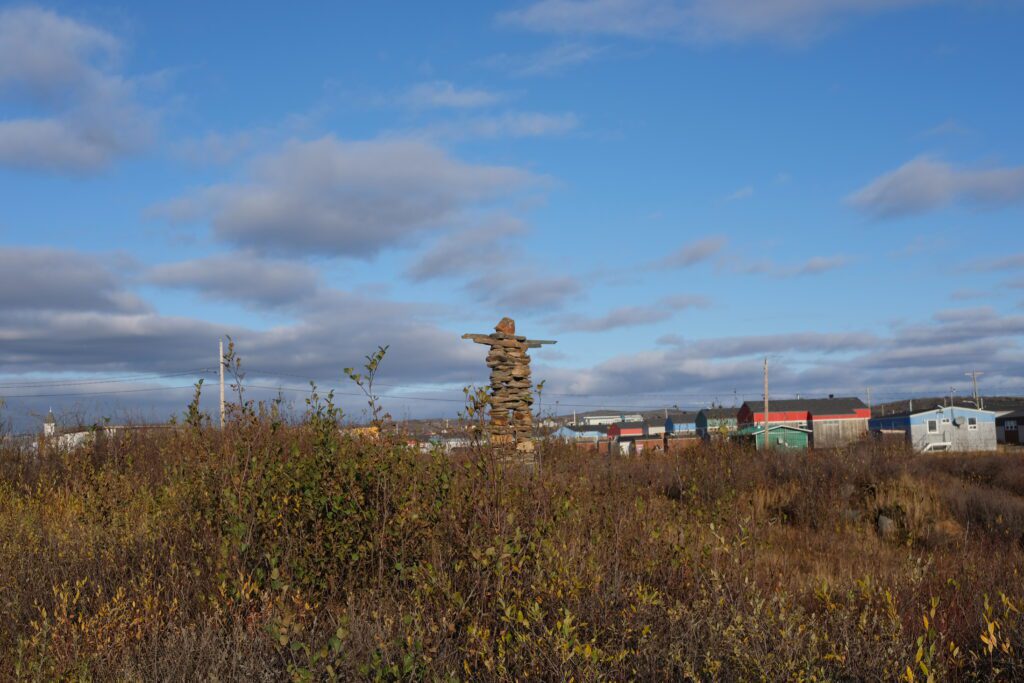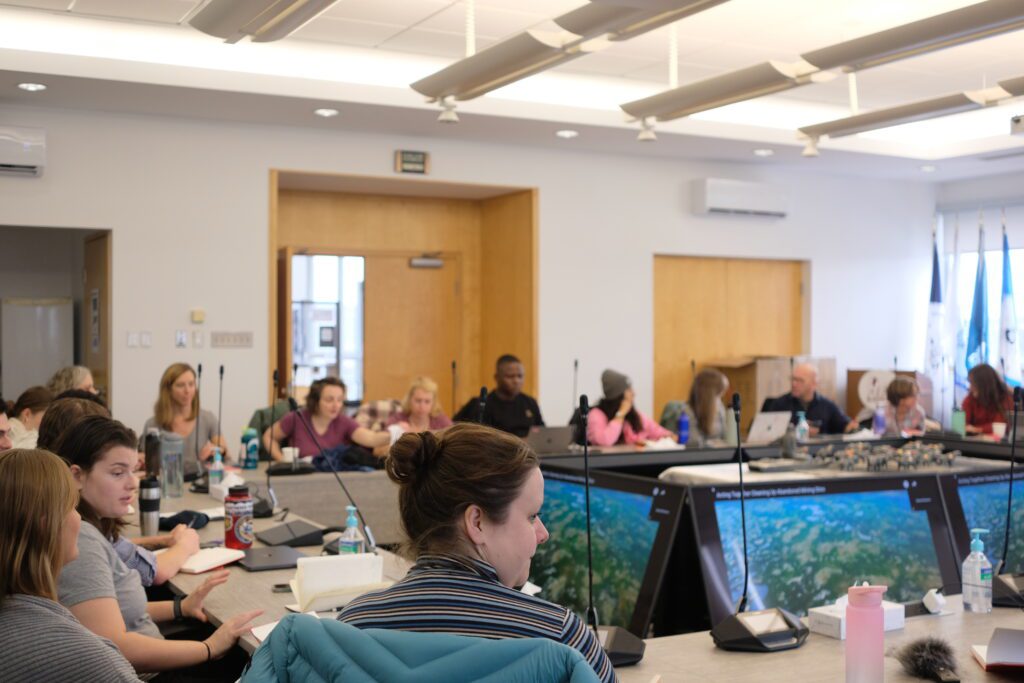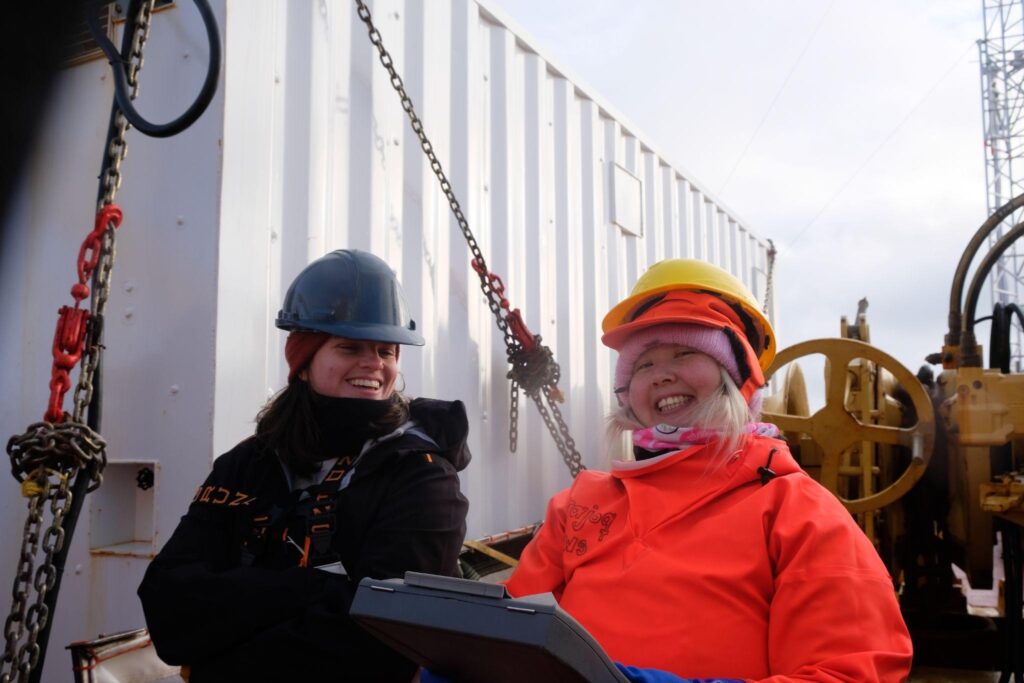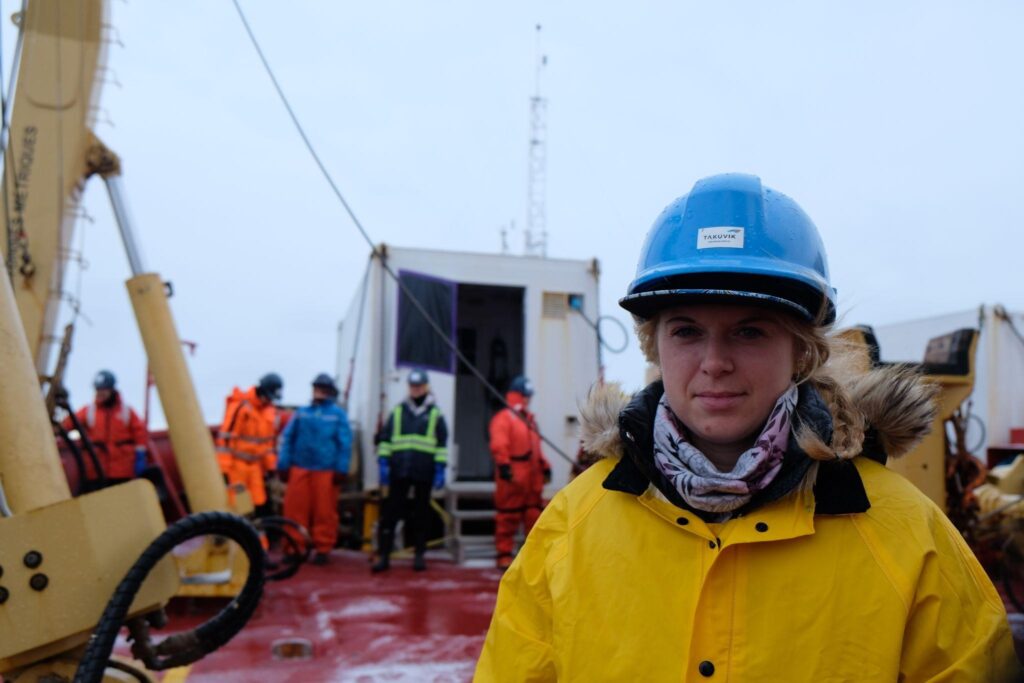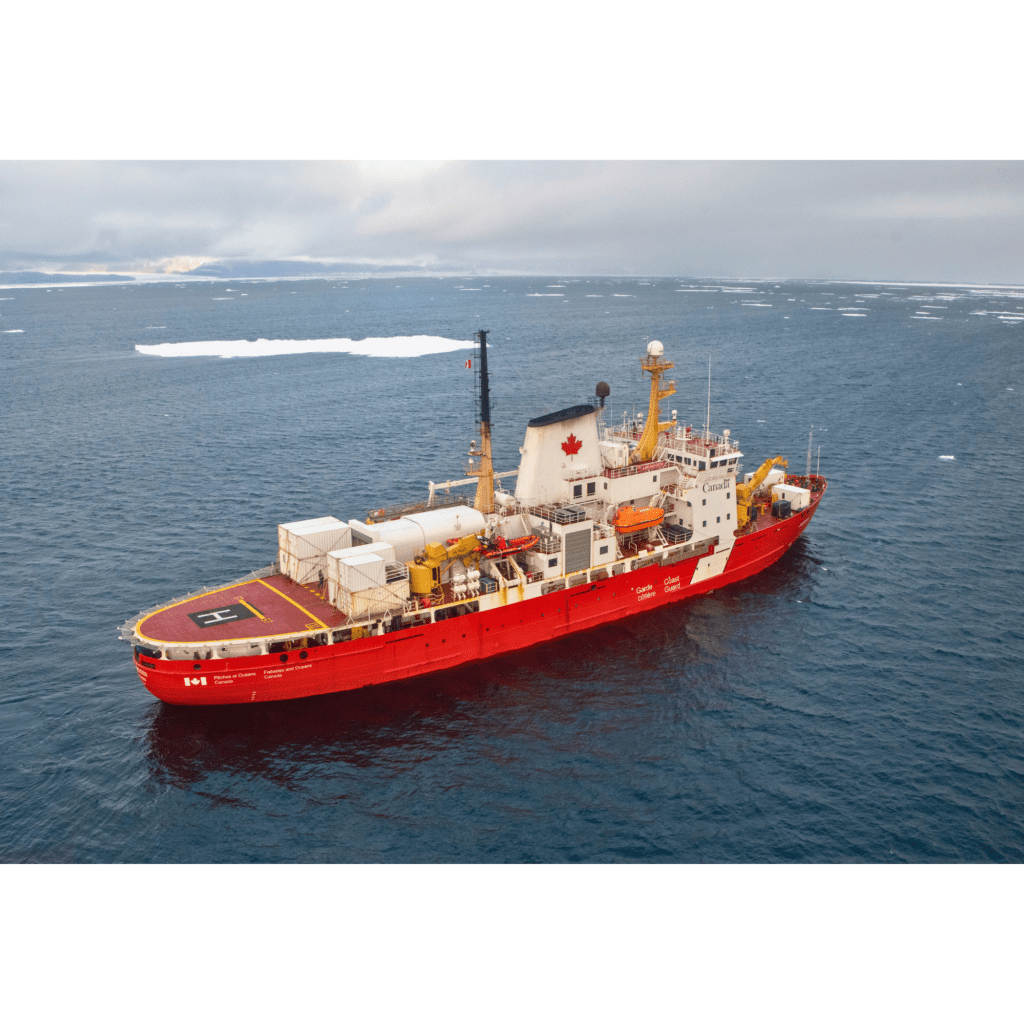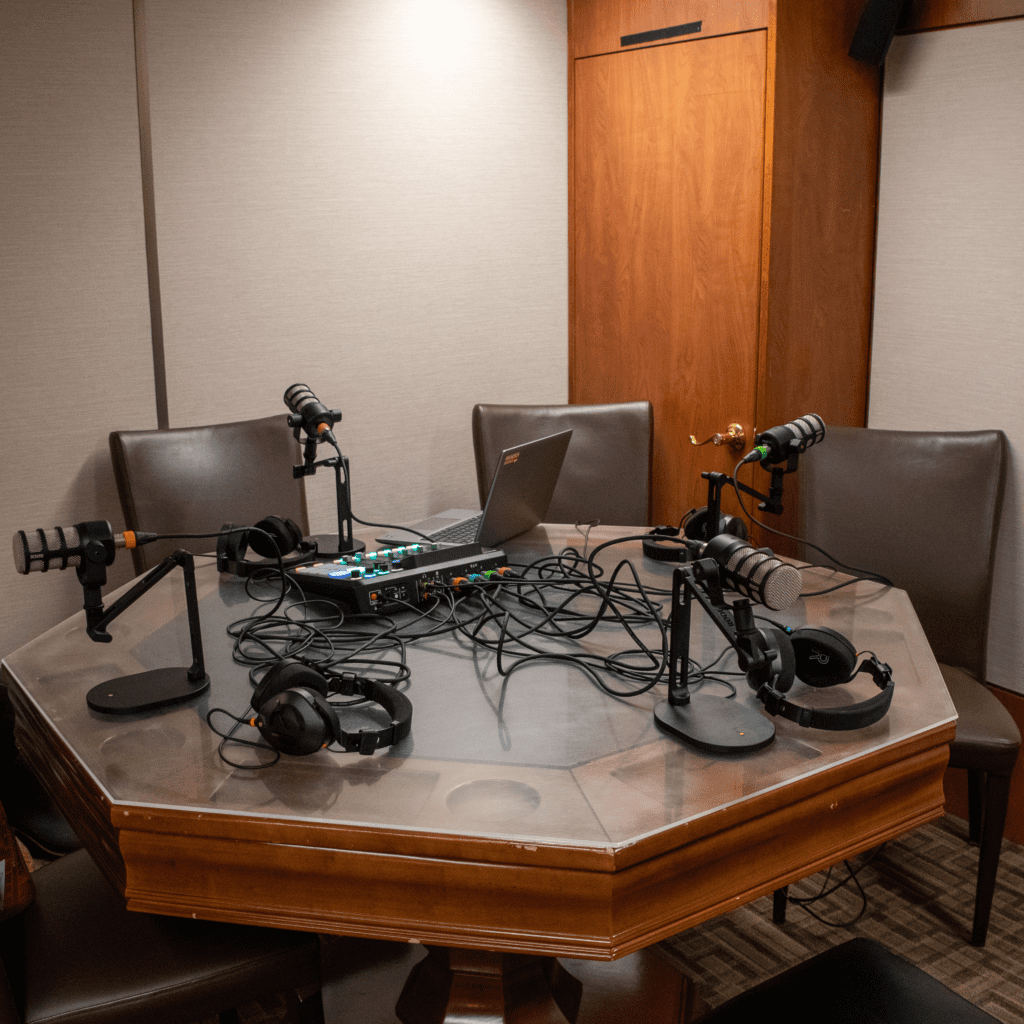Story by Myrah Graham, Northern Research Liaison at Amundsen Science
Leg 5B of the 2024 Amundsen Expedition was host to an unusual field school: that of social and natural scientists connected by Sentinel North and Wage Circumpolar Partnership. Their goal? Understanding emerging blue economies in the Arctic.
A Multifaceted Learning Experience
On October 14th of 2024, 8 mentors and a group of 18 international graduate students embarked on an extraordinary journey to explore the emergence of innovative Blue Economies in the Arctic. Selected as part of the Sentinel North and Wage Circumpolar Partnership International Graduate School, these students left Montréal to Kuujjuaq, venturing into the heart of Ungava Bay. The field school was divided into two distinct phases: a land-based component in Kuujjuaq and a sea-based component aboard Canada’s only research icebreaker, the CCGS Amundsen. This dual structure allowed participants to gain a comprehensive understanding of the challenges and opportunities facing Arctic communities and offered participants the opportunity to interact with renowned experts in a wide range of disciplines of both social and natural sciences.

Kuujjuaq: Gateway to Understanding
Tucked inland from Ungava Bay, Kuujjuaq is an Inuit village connected to the sea via the Koksoak river. Between October 15th and 20th, participants and experts engaged with various organizations and knowledge holders in Kuujjuaq, gaining valuable insights into local perspectives on Arctic development and sustainability. They met with representatives from key organizations such as Makivik Corporation, the Kativik Regional Government and the Nunavik Research Center. Common themes which emerged from these meetings were the need for research and reciprocity in the region, as well as respect for local knowledge and country foods.
These interactions provided invaluable insights into the daily realities of Nunavimmiut and the rapid changes affecting their way of life. For many of the students in the natural sciences disciplines, this was their first exposure to social issues in the North, shared directly by those affected. Students learned about critical issues in the region, including the challenges of drinking water and wastewater management in Arctic communities. They explored the impacts of climate change on infrastructure, a pressing concern as permafrost thaw and changing weather patterns threaten existing buildings and roads. Marine infrastructure challenges were also discussed, highlighting the difficulties in maintaining ports and shipping routes in the North. Food security and sovereignty emerged as key topics, with participants gaining an understanding of the complex interplay between traditional subsistence practices and modern food systems in the region. Additionally, the field school participants were introduced to various environmental monitoring and research initiatives led by Makkivik government and community members. These initiatives showcased the importance of scientific data collection in informing policy decisions and community planning in this rapidly changing landscape.
All Aboard the CCGS Amundsen: Science Meets Society
The Canadian icebreaker arrived at Kuujjuaq on October 20th for a science rotation. Scientists onboard since the beginning of October disembarked as the field school participants and experts took place on the ship. Once aboard the Amundsen, the tables turned, as social scientists stepped out of their comfort zones and participated in environmental data collection. The students focused their research on three of Ungava Bay’s main tributaries, collecting crucial ecological data in an area where environmental information is scarce. Social scientists and natural scientists alike engaged in sampling plankton, seawater and sediments from the bottom of the sea floor. This endeavor aimed to support community resilience in the region, by collecting data which could help prepare and inform communities for the emerging blue economy. The interdisciplinary nature of the field school was evident in the diverse range of activities and discussions held on board. Students explored topics such as ocean observations for a sustainable blue economy, biodiversity and ecosystem services, and the impact of renewable energy on Arctic ecosystems.
Bridging Disciplines and Cultures
The Sentinel North and Wage Circumpolar Partnership International Graduate School exemplified the power of transdisciplinary research and education in addressing the pressing issues of our changing North. Throughout the field school, students critically examined the Blue Economy and its impacts on Arctic communities. Social scientists learned about Arctic ecosystems from natural scientists, while natural scientists gained insight into the socio-economic dimensions of their research. This exchange deepened understanding of the connections between economic development, environmental conservation, and social equity in the Arctic.
By the end of the expedition, students had not only collected valuable data but also developed a nuanced appreciation for the complexities of life in a changing Arctic. Their experiences in Kuujjuaq and aboard the Amundsen broadened their perspectives, preparing them to become future leaders in Arctic research and policy. By integrating diverse scientific disciplines with local knowledge, initiatives like this foster innovative solutions for sustainable development amid rapid environmental and social change.

